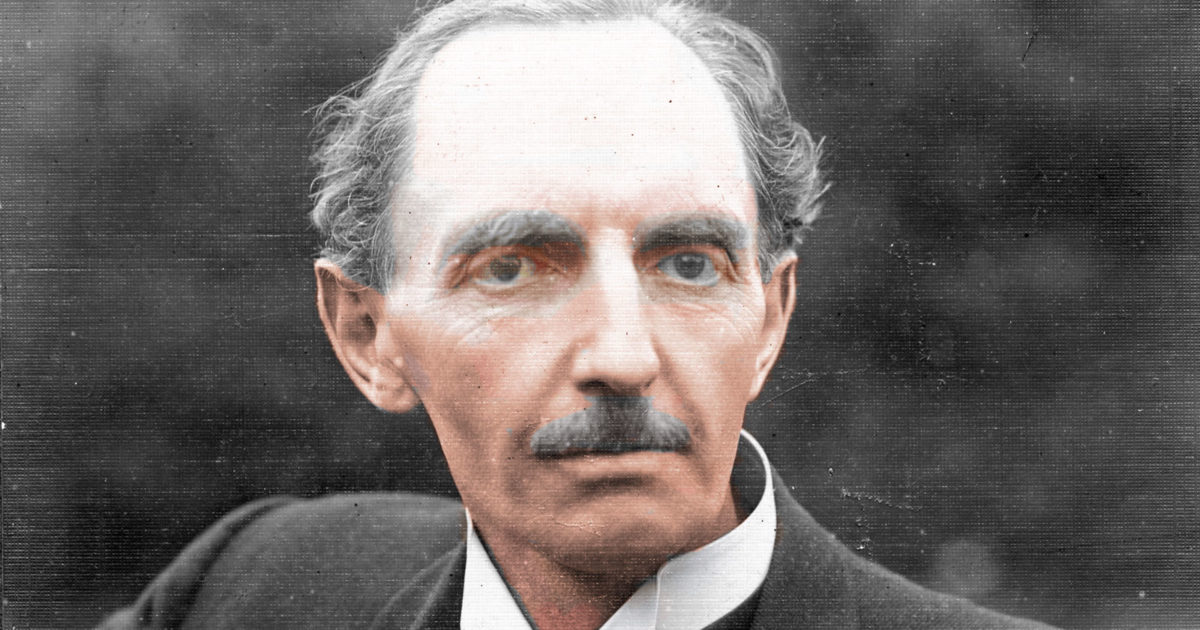Only One Life, ’Twill Soon Be Past - C.T. Studd
Charles Thomas Studd, better known as C. T. Studd, was a man who gave up fame, fortune, and comfort to follow Jesus Christ. Born in 1860 in England to a wealthy family, Studd was a gifted athlete and became one of the best cricket players in the country. By the time he was in his early twenties, he had achieved the kind of success most young men only dreamed of. Yet, his heart was stirred by something greater than sport and applause.
After his conversion to Christ, Studd realized that the glory of the world fades quickly. His life took a dramatic turn when he joined the famous “Cambridge Seven,” a group of young men who gave up promising careers to become missionaries in China under Hudson Taylor’s China Inland Mission. This decision shocked English society, but it reflected Studd’s growing conviction that life is short and eternity is real.
The heart of his message
It was out of this conviction that Studd later wrote the lines that continue to inspire believers around the world:
“Only one life, ’twill soon be past,
Only what’s done for Christ will last.”
These words were not empty poetry. They were the philosophy by which Studd lived. He inherited a fortune from his father but chose to give it away to Christian work and missionary causes. He believed money was a tool to serve the Lord, not something to cling to. His sacrifices reflected Jesus’ words: “Lay not up for yourselves treasures upon earth… But lay up for yourselves treasures in heaven” (Matthew 6:19-20, KJV).
Studd’s life was marked by service in some of the hardest mission fields. After years in China, he also labored in India, where he pastored and encouraged struggling believers. Yet, perhaps his greatest and most challenging work came later in Africa. Despite poor health, he pressed into the heart of the Congo, determined to bring the gospel to those who had never heard.
Many criticized him for risking his life and his family’s well-being, but Studd was unwavering. His writings reveal his perspective: if Christ be God and died for me, then no sacrifice can be too great for me to make for Him.
Studd’s poem shows how he measured every choice. The verses remind readers that earthly pursuits fade, temptations are real, and trials come—but God calls His children to live faithfully and intentionally. He prayed for a “purpose deep” and sought to burn out his life as a lamp for the Lord.
The Apostle Paul wrote, “For to me to live is Christ, and to die is gain” (Philippians 1:21, KJV). That verse could easily have been the banner over C. T. Studd’s life. He did not live for applause or comfort but for the smile of his Savior. When he died in 1931, his legacy was not cricket trophies or worldly wealth, but the gospel planted across three continents and a poem that still convicts believers to this day.
Today, Studd’s refrain remains a call to the church: our years are few, and soon we will stand before Christ. The treasures that endure are not bank accounts, career achievements, or earthly honors, but what has been done for the glory of God.
As you consider Studd’s biography, take his words personally. Ask yourself: Am I living for Christ, or for myself? Am I investing my time and resources into what will last for eternity?
C. T. Studd’s life answers those questions with boldness. He chose to live as though eternity was real, and because of that, his influence still lives on.
“Only one life, ’twill soon be past,
Only what’s done for Christ will last.”


Anonymous
I'm really enjoying the design and layout of your website.
It's a very easy on the eyes which makes it much more pleasant for me to come here and visit more often. Did you hire
out a developer to create your theme? Fantastic work!
September 28, 2025, 4:25 p.m.